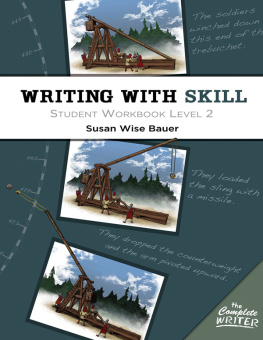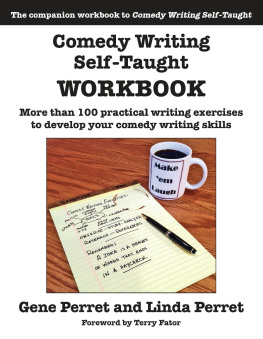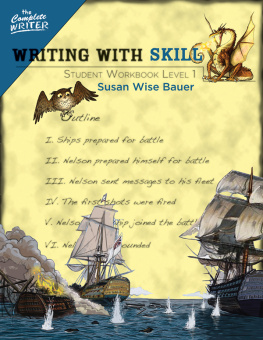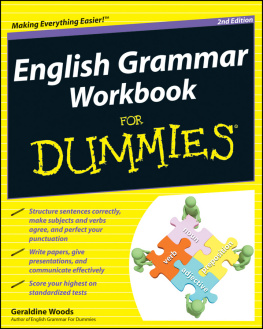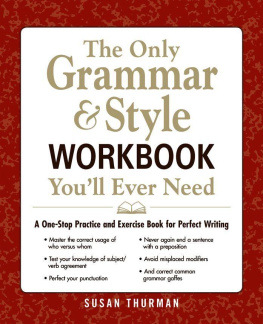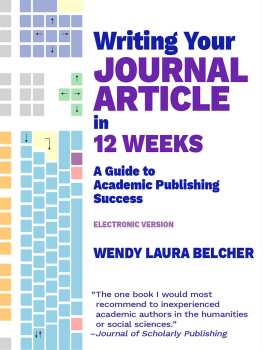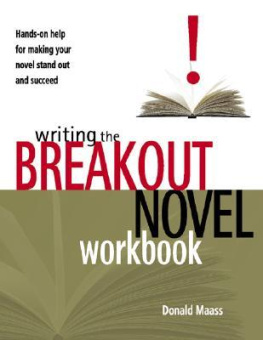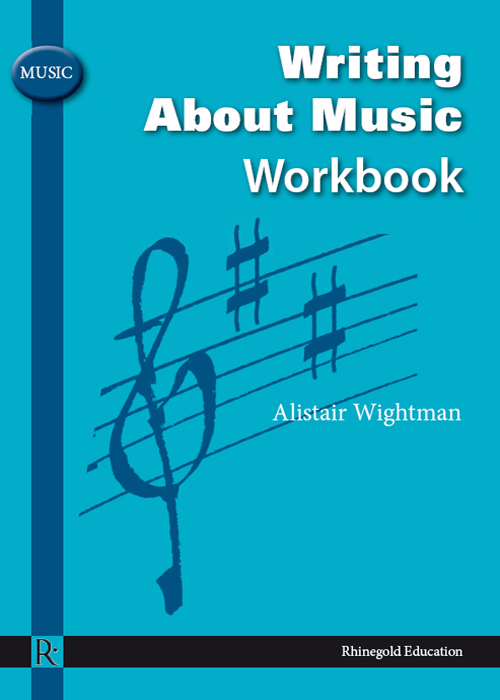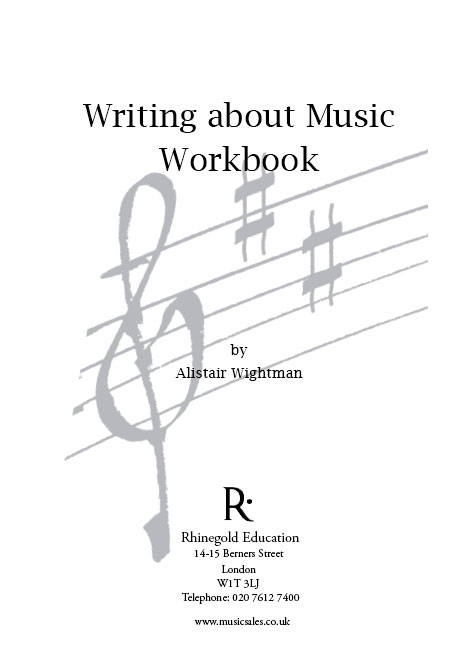
Copyright 2008 Rhinegold Education
This edition 2010 Music Sales
(A Division of Music Sales Limited, 14-15 Berners Street, London, W1T 3LJ)
EISBN: 978-0-85712-565-1
The Author hereby asserts his/her right to be identified as the author of this work in accordance with Sections 77 to 78 of the Copyright, Designs and Patents Act 1988.
All rights reserved. No part of this book may be reproduced in any form or by any electronic or mechanical means, including information storage or retrieval systems, without permission in writing from the publisher, expect by a reviewer who may quote brief passages.
Every effort has been made to trace the copyright holders of the photographs in this book, but one or two were unreachable. We would be grateful if the photographers concerned would contact us.
A catalogue record for this book is available from the British Library.
For all your musical needs including instruments, sheet music and accessories, visit www.musicroom.com
For on-demand sheet music straight to your home printer, visit www.sheetmusicdirect.com
IF YOU ARE PREPARING FOR AN EXAM YOU SHOULD ALWAYS CAREFULLY CHECK THE CURRENT REQUIREMENTS OF THE EXAMINATION, SINCE THESE MAY CHANGE FROM ONE YEAR TO THE NEXT.
Contents
Author
Alistair Wightman has worked in primary, secondary and further education, and continues to teach at the Staffordshire County Council School for Talented Young Musicians. He is also a freelance teacher and writer, and serves as a principal examiner in music history and analysis in A-level music with one of the English examination boards. In addition to appearing as a pianist, both as a soloist and as a member of the Chiarina Trio, he pursues an interest in Polish music, his publications including several books and articles devoted to Tadeusz Baird, Mieczyslaw Karlowicz and Karol Szymanowski.
Acknowledgements
The author is grateful to Hugh Benham, Julian Johnson and Dai Griffiths for their suggestions, and to Lucien Jenkins, Chris Elcombe, Ben Robbins, Katherine Smith, Harriet Power and Matthew Hammond at Rhinegold Publishing for their assistance in the editorial and production process.
The publishers and author are grateful to Faber and Faber Ltd for permission to use excerpts from Renaissance and Baroque Music by Friedrich Blume, and The Classical Style by Charles Rosen.
Preface
What is this book for?
Writing about Music Workbook is designed to help you to think about issues which may arise when writing about music, and to offer guidance in developing this skill. As writing as such is a non-musical skill, the workbook will also bolster abilities which will be of use in other areas of life: collecting information, selecting relevant material, presenting arguments for and against particular propositions, and expressing ideas effectively and correctly in English.
Who will find the workbook useful?
The workbook is intended for use, in the first instance, by AS and A2 students, across all of the exam boards. It also aims to bridge the gap between advanced-level and first-year studies in colleges and universities. It deals with the structured, highly specific tasks sometimes set at AS level before moving on to the more extended lines of enquiry more typical of A2 examinations, and the open-ended questions more characteristic of first-year, higher-education examinations and coursework.
The material in the book is also suitable for other further-education syllabus such as the international Baccalaureate Diploma and the Cambridge Pre-U. The book will refer to AS and A2 for simplicitys sake, as a guideline for the approximate standard being discussed.
For that reason, we do not expect that you will necessarily wish to tackle the workbook in one go, as by its very nature it is intended to provide guidance over a period of several years.
It is impossible to be precise about which bits of the book will be suitable for you: the sorts of writing tasks involved at AS and A2 level vary between exam boards, and the same is true of higher-education institutions. The table below can be used as a guide, but remember to check the specific requirements of your syllabus; and dont be afraid to try some of the sections (and exercises) that dont appear to be aimed at you you might find them useful nevertheless.
What is in the book?
| Chapter | Content | Estimated level |
| 1 | The fundamentals of writing about music, including clarification of terminology | Refresher for AS, A2 and beyond |
| 2 | Spelling, grammar, punctuation and style | Refresher for AS, A2 and beyond |
| 3 | Programme and sleeve notes | AS/A2 |
| 4 | Essay structure, quotation and reference, planning | All levels |
| 5 | Typical exam questions | Mainly AS, some A2 |
| 6 | Compare and contrast | All levels but mainly A2 |
| 7 | More advanced compare and contrast | A2 and beyond |
| 8 | Extended questions | A2 and beyond |
| 9 | Set-work and analysis questions | A2 and beyond |
| 10 | Topic questions | A2 and beyond |
| 11 | Open questions | Mainly higher education (practice for entrance/first year) |
The workbook contains advice on how to tackle typical examination tasks and written papers. It also includes exercises along the way ranging from naming musical features and spotting grammatical errors to devising essay plans and analysing sample answers to help you develop and practise the skills that you will need. For many of these exercises, answers are provided in the back of the book (only check these once you have attempted the activity yourself); some of the others are discussed in an analysis following the exercise. An indication of where help can be found is clearly indicated in both cases.
The book begins with fundamental requirements: correctly applied terminology and the use of clear, comprehensible English. It moves on to how to describe basic features in a musical work, as well as comparisons and contrasts between specified pieces. There is advice on how best to tackle research or the collection of information; what to retain and what to reject; and how to structure an essay. Illustrative examples are provided, drawing on many different types of music. Occasionally, mark schemes are shown to indicate how well a particular response to an essay might fare. These are advisory: mark allocation will vary between different exam boards or universities, and the marks awarded in this book do not reflect any specific exam boards marking practice.
The book also deals with more detailed and analytical set-work questions, as well as extended, dissertation-style essays and writing programme notes. It aims to show how higher-education tasks expand on those set at advanced level. Finally, there are some brainstorming, argument-provoking lines of enquiry touching on broader musical issues.
What skills do you need?
It is assumed that you will have had little or no prior experience in writing about music, although if you are embarking on an AS course you should already have undergone more general training in the use of language, and be in possession of a reasonable knowledge of how music works and of the terminology used to describe it.


